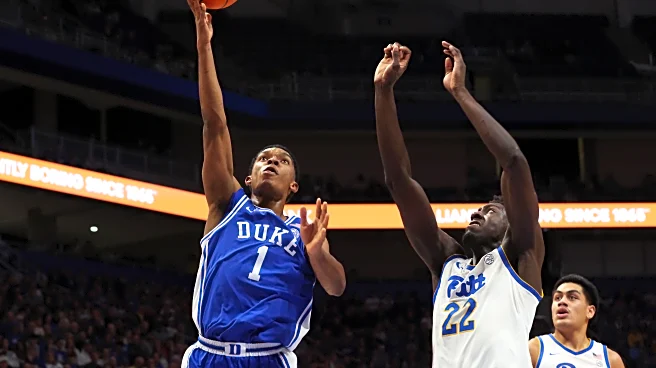What's Happening?
Micah Parsons, recently traded from the Dallas Cowboys to the Green Bay Packers, is set to face his former team for the first time. The trade followed a contract impasse and Parsons' request to leave the Cowboys. Despite expressing no hard feelings publicly, psychological experts suggest that Parsons may harbor bitterness, which could either fuel his performance or become a distraction. The Cowboys' decision not to honor Parsons with a tribute video at AT&T Stadium may exacerbate these feelings. Parsons' emotional state could play a significant role in his performance during the upcoming game against the Cowboys.
Why It's Important?
The emotional dynamics surrounding Parsons' return to Dallas highlight the psychological aspects of professional sports. Bitterness, if not managed properly, can lead to decreased performance and increased stress. However, if channeled effectively, it can also serve as a powerful motivator. For the Packers, Parsons' ability to harness his emotions could be crucial in their strategy against the Cowboys. The situation underscores the importance of mental health and emotional intelligence in sports, as athletes navigate complex personal and professional relationships.
Beyond the Headlines
The case of Micah Parsons illustrates broader themes in sports psychology, such as the impact of emotions on performance and the role of mental health support for athletes. It raises questions about how teams can better support players during transitions and manage the emotional fallout from trades and contract disputes. The situation also reflects the high-stakes nature of professional sports, where personal feelings can intersect with team dynamics and influence outcomes on the field.










